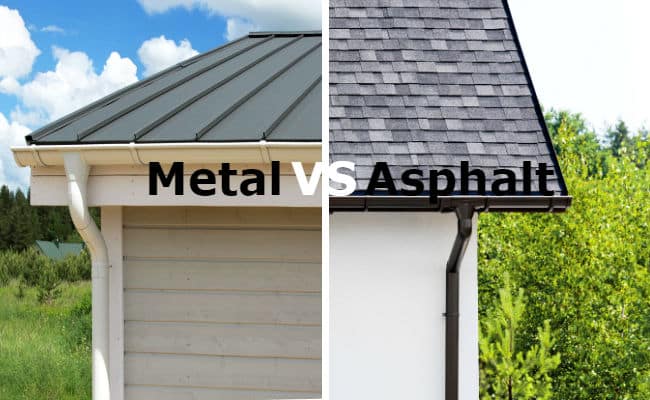When choosing a roofing material for your home, two popular options are metal roofs and asphalt shingles. Both have distinct advantages and disadvantages that homeowners should consider based on their specific needs and preferences.v Metal Roof vs. Asphalt Shingles
Metal Roofs
Pros:
Durability: Metal roofs are highly durable and can last between 40 to 70 years, depending on the material. They are resistant to severe weather conditions, including heavy rain, snow, and high winds, and can also withstand fire, mildew, and insect damage.
Energy Efficiency: Metal roofs reflect solar radiant heat, which can reduce cooling costs by 10-25%. This makes them an energy-efficient option, particularly in hot climates.
Low Maintenance: Metal roofs require minimal maintenance. Unlike asphalt shingles, they do not need regular upkeep or replacement, which can save homeowners time and money in the long run.
Environmentally Friendly: Metal roofing materials are often made from recycled content and are 100% recyclable at the end of their life. This makes them an environmentally responsible choice.
Cons:
Initial Cost: The initial cost of metal roofs is significantly higher than asphalt shingles. The installation is also more complex and expensive, which can be a deterrent for some homeowners.
Noise: Metal roofs can be noisier than other types, especially during heavy rain or hailstorms. However, this can be mitigated with proper insulation.
Expansion and Contraction: Metal roofs expand and contract with temperature changes, which can cause the fasteners to loosen over time. This requires periodic inspection to ensure the roof remains secure.
Asphalt Shingles
Pros:
Affordability: Asphalt shingles are much more affordable than metal roofs. They are a cost-effective option for homeowners looking to save money on their roofing project.
Ease of Installation: Asphalt shingles are easier and quicker to install, which can reduce labor costs. Most roofing contractors are familiar with their installation, making it easier to find a qualified professional.
Variety: Asphalt shingles come in a wide range of colors and styles, allowing homeowners to choose an option that best fits their aesthetic preferences.
Sound Dampening: Asphalt shingles provide better sound insulation compared to metal roofs, making them quieter during rain and hailstorms.
Cons:
Lifespan: Asphalt shingles have a shorter lifespan, typically lasting 15 to 30 years. They may require more frequent replacement and maintenance compared to metal roofs.
Weather Vulnerability: Asphalt shingles are more susceptible to damage from extreme weather conditions, such as high winds and hail. They can also deteriorate faster in climates with significant temperature fluctuations.
Environmental Impact: Asphalt shingles are not as environmentally friendly as metal roofs. They are made from petroleum products and are not easily recyclable, contributing to landfill waste.
Maintenance: Regular maintenance is required to ensure the longevity of asphalt shingles. This includes checking for and repairing damaged or missing shingles and ensuring proper ventilation to prevent moisture buildup.
Conclusion
The choice between metal roofs and asphalt shingles ultimately depends on individual preferences, budget, and environmental considerations. Metal roofs offer superior durability, energy efficiency, and environmental benefits but come with a higher initial cost. Asphalt shingles, on the other hand, are more affordable and offer a variety of styles but require more maintenance and have a shorter lifespan. Homeowners should weigh these pros and cons to make an informed decision that best suits their needs.

